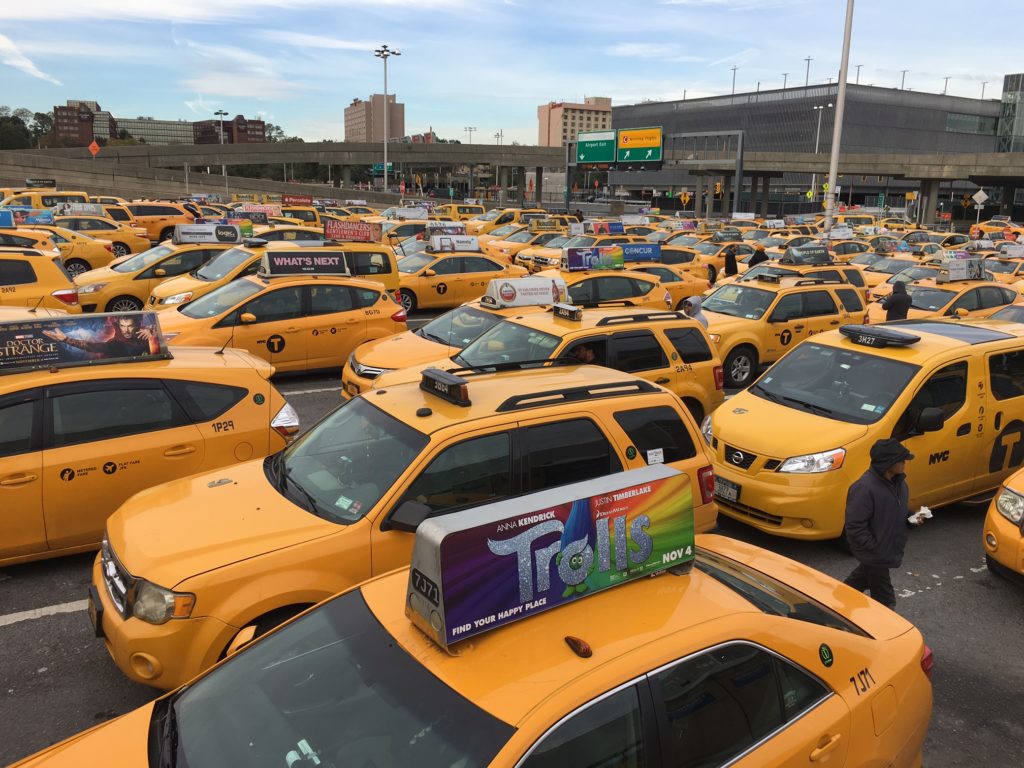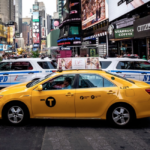
A decade ago the federal government stepped in to bail out the nation’s biggest banks. Now it may be time to for New York City to bail out its cabbies.
A New York City Council commission released a report Friday recommending a publicly managed fund to bail out thousands of taxi drivers struggling to pay back six-figure and even seven-figure loans they took out to buy the official city taxi medallions that allow them to legally operate a cab in the five boroughs of New York.
Hundreds of cabbies have had to give up their taxis to pay back loans as once-skyscraper-high medallion values have crashed to the curb. Many more are expected to face bankruptcy. Eight drivers have committed suicide in the past two years in what some call a result of the financial strain on New York’s cabbies.
TRENDING NEWS
The commission’s report says much of the money needed for a taxi bailout could be raised from private investors who would buy up the debts and refinance the underwater borrowers into more affordable loans. But it doesn’t say how much should be raised.
Proponents of the plan, like City Councilmember Stephen Levin and New York Taxi Drivers Alliance chief Bhairavi Desai, have suggested $500 million alone from private investors, who would collect as much as 4.5% interest on the new taxi loans. Still, Levin and others on the commission acknowledged the city may have to commit to covering as much as $100 million in future losses to attract investors to potentially risky loans.
New York Times: Reckless loans devastate a generation of taxi drivers
Levin said the investing arm of union-owned Amalgamated Bank has already expressed interest in contributing money to the bailout fund. “I have talked to a number of the parties that need to be participants in the plan, and we are all on the same page,” Levin told CBS MoneyWatch. “The pieces seem to be falling into place.”
The proposed cabbie bailout is another sign of how technology and the gig economy are upending local economies and jobs that were once a path to the middle class. The New York Daily News reported this week that taxi loan foreclosures hit 510 last year, up from just five in 2012 — the year before a new ride-hail phone app called Uber launched in New York City.
It is also sure to reignite the types of debates that raged a decade ago before federal lawmakers approved a $700 billion bailout of the biggest banks. Some are arguing that New York’s taxi drivers, like America’s homeowners before them, deserve a bailout because they were victims of both unscrupulous lenders and the rise of Uber and Lyft, companies that have been allowed to play by a different set of rules.
“The issue is the cost,” said Greg David, a journalism professor at the City University of New York who is a long-time observer New York business and politics.
Do one bailout, David suggested, and others such as unionized hotel workers losing jobs to AirBnB or neighborhood store owners closing shop to Amazon will be looking for handouts as well.
Levin countered that the taxi medallion market is a unique situation because it is controlled by the city.
It’s not just New York that has contemplated local bailouts. Last year, California approved $48 million for a state government-funded loan program that would help independent truckers pay the cost of complying with new emission regulations in that state.
A New York taxi bailout, though, would be considerably larger than the one in California.
The plan is to buy up the troubled taxi loans at a discount and refinance the drivers into more affordable loans. Industry experts estimate there are 5,000 individual taxi drivers who have medallion loans. Half of them are struggling to make their payments, some as high as $60,000 annually.
California labor law meant to protect gig-economy workers under fire
The taxi bailout commission in its report points out that hedge funds have been able to buy up troubled medallion loans that had a starting balance of $650,000 for as little as $125,000.
But Matthew Daus, a lawyer who has worked with a number of the taxi lenders, said the hedge fund deals have been rare. Most banks are not eager to sell at steep discounts, he insisted. “I am not hearing a lot of enthusiasm for the bailout,” Daus said.
Joseph Mason, a finance professor at Louisiana State University who studies bailouts and advised federal lawmakers during the financial crisis, said bailouts often end up costing more than people think and helping fewer than intended.
Just announcing that New York City intends to buy up to $500 million in underwater taxi loans would likely drive up the value of those loans, Mason said. That’s especially true in an artificial market like taxi medallions, where supply is determined by the local government that issues or retires the medallions. And that makes it hard to know how much a bailout could eventually cost.
“You can control price or you can control quantity,” Mason said. “You can’t control both. It goes against the laws of economics.”







Assurance Cover Australia was established in response to the rising cost of insurance in the point to point transportation industry. With a combined 60 plus years of experience in the industry, their aim is to work together with the end-users to provide an affordable risk protection product that provides discretionary cover specifically for motor vehicles and drivers. Their understanding of the industry has given them the knowledge and experience to create a comprehensive and affordable discretionary cover product for vehicles.